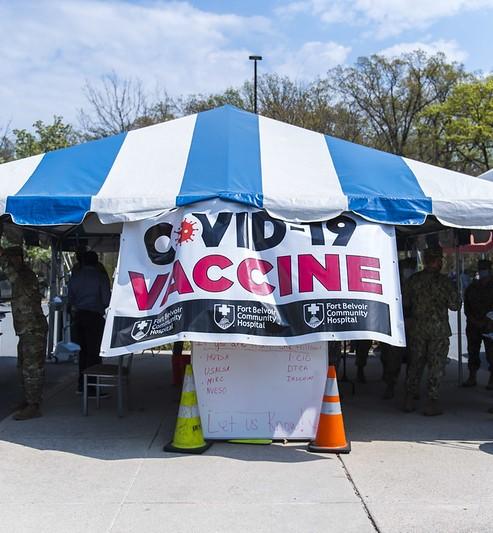Over the weekend US practitioners administered a record number of COVID-19 vaccines, with more than 4 million shots distributed on Apr 10.
The daily average number of vaccines given is now over 3 million, as the country races to vaccinate adults within the next 6 weeks.
But despite the progress in vaccination, the director of the Centers for Disease Control and Prevention (CDC), Rochelle Walensky, MD, MPH, said today that current hot spots, such as Michigan, need to focus on masking and physical distancing—in addition to vaccination—to end the latest surge of virus activity.
"Really what we need to do in those situations is to shut things down," Walensky said during a White House briefing. "If we tried to vaccinate our way out of what is happening in Michigan, we would be disappointed that it took so long for the vaccine to work to actually have the impact."
Walensky said though the vaccines are very effective, and the United States is working faster than any country in the world to vaccinate eligible adults, it takes 2 to 6 weeks or more to see vaccination's effect on transmission levels.
Cases continue to rise
The CDC's COVID Data Tracker shows 237,796,105 COVID-19 vaccines have been delivered in the country and 187,047,131 have been administered, with 72,630,892 Americans fully vaccinated.
But daily case counts are on the rise again. Yesterday the country recorded 46,378 new COVID-19 cases, and 283 deaths, according to the Johns Hopkins COVID-19 online tracker.
In the past week new daily COVID-19 cases rose by 7.6%, and hospitalizations rose by 5.3%, according to data from the Washington Post. Deaths, however, fell by 8.8%.
Much of the rise is attributed to hot spots in the Upper Midwest and East. Michigan is averaging 6,545 new cases a day, up 16% from a week ago, according to mlive. More cases were reported from Apr 7 to 10 than in all of February.
More women than men getting vaccinated
Kaiser Health News reported that women are getting vaccinated against COVID-19 faster than men are. In an analysis of 38 states that breaks down vaccination records by sex, more women than men had gotten the vaccine.
In some states, women make up about 60% of vaccine recipients.
Experts say the gap can be explained by a number of factors: Women outlive men, so elderly vaccine recipients are more likely to be women. Women also tend to be the caregivers in the family and more likely to make medical appointments.
In other vaccine news, the number of unfilled vaccine appointments at Walmart, CVS, and Rite Aid pharmacies grew by about 60% over the past week, USA Today reports.
High hospitalization rate in Hispanic Americans
Today in Morbidity and Mortality Weekly Report, the CDC showed that Hispanic or Latino Americans represented the highest proportion of hospitalized COVID-19 patients in all of 2020, with the biggest disparities seen in the early months of the pandemic.
In an additional CDC report, data from 13 states comparing White patients with Hispanic and American Indian or Alaska Native patients found that the minority groups experienced 1.7 times the rate, and Black persons experienced 1.4 times the rate, of emergency department care visits for COVID-19 during October through December 2020.
"The racial/ethnic groups that sought ED care for COVID-19 at disproportionately higher rates have also experienced long-standing, systemic inequities that affect their health," the authors said.
"These inequities include limited access to quality health care, lower general health status and access to quality education, and disproportionate representation in essential jobs with less flexibility to work from home or take medical leave."
Other US developments
- Regeneron announced today that the results of a phase 3 trial showed the company's monoclonal antibody cocktail (casirivimab with imdevimab) reduced the risk of infection by 81% among household contacts of SARS-CoV-2–infected individuals. The trial also found that, among those who did get infected, recipients of the cocktail cleared the virus faster and had much shorter symptom duration.
- More than two dozen US colleges and universities have announced they will require students to have a COVID-19 vaccine when they return in the fall, and many more are likely to do so, NPR






















